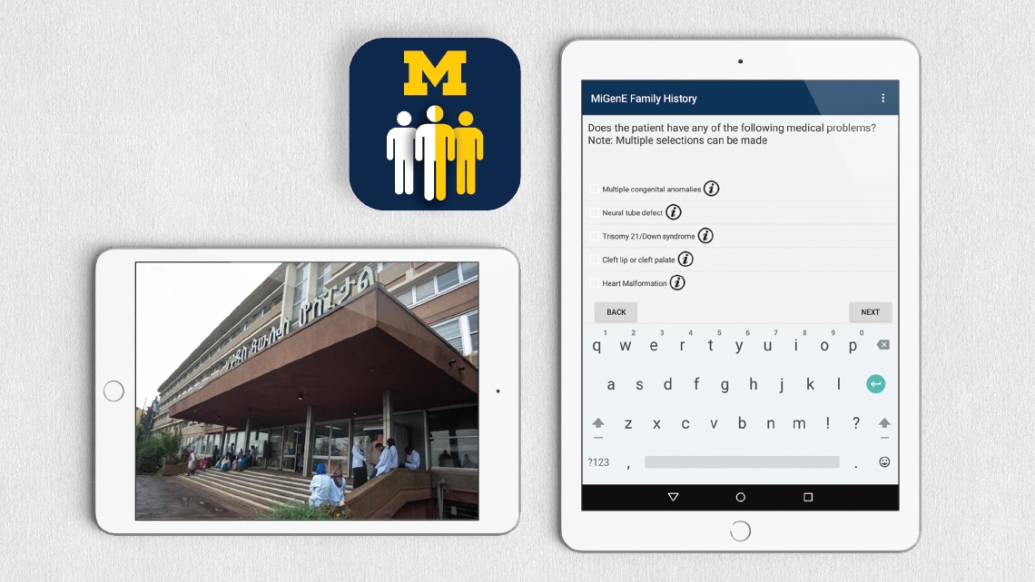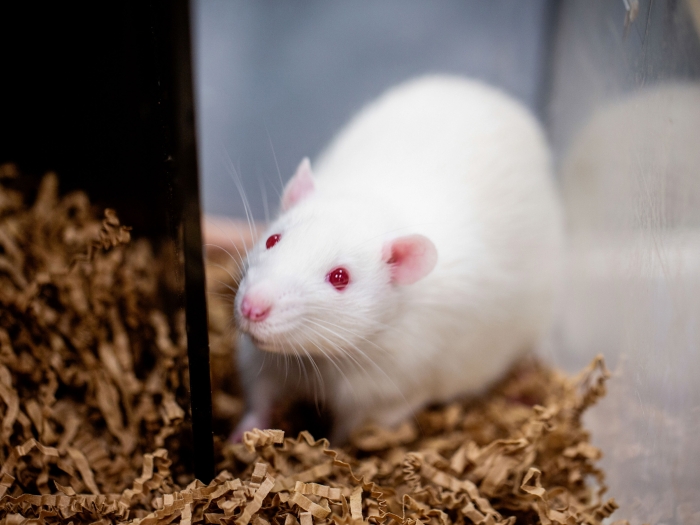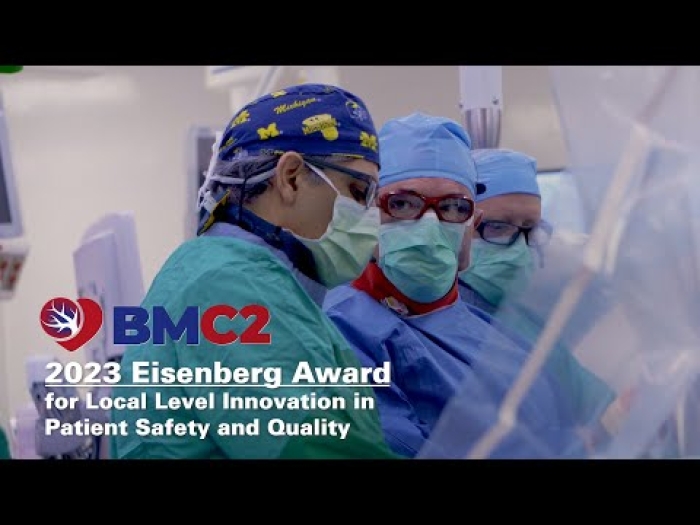U-M researchers are using smartphone technology to improve genetics services and reduce birth defects in Ethiopia
Author |

The World Health Organization estimates that genetic birth defects affect 7.9 million children worldwide every year, and 94 percent of those births occur in low- and middle-income countries. Many of these defects are preventable and treatable. But without the infrastructure in place to track genetic information, health providers in developing countries can't capture the real-time, region-specific data necessary to provide community genetics services such as birth registries and genetic risk assessment counseling.
Shane Quinonez, M.D., a medical geneticist at University of Michigan's C.S. Mott Children's Hospital, is changing that. His solution capitalizes on one of the most accessible technologies in the world: smartphones.
Quinonez conceptualized the MiGene Family History Application, a mobile app that assists physicians in gathering patient demographic data and medical histories. It also helps them track this data and provide community genetics care to their patients.
We hope to establish an Ethiopian research network so that they can collaborate and design their own studies on the epidemiology of disorders in Ethiopia. –Shane Quinonez, M.D.
Launched in summer 2016, MiGene was developed through a partnership between U-M's departments of pediatrics and of obstetrics and gynecology, and St. Paul's Hospital Millennium Medical College, or SPHMMC, in Ethiopia.
"Our initial goal is to test the app so we can identify and update any software issues," says Quinonez, also an assistant professor of pediatrics and communicable diseases and of internal medicine. "Then, the more long-term goal is the inclusion of an additional hospital in the region to gather more user-generated data and to really foster the collaboration between hospitals. We hope to establish an Ethiopian research network so that they can collaborate and design their own studies on the epidemiology of disorders in Ethiopia."
SPHMMC pediatricians, OB-GYNs and fetal medicine specialists are using the MiGene app to trace patient histories of conditions such as Trisomy 21/Down syndrome, cleft lip and/or palate, heart malformations and intellectual disability. It will track the number of diagnosed living and deceased relatives to establish a three-generation lineage. Based on the medical diagnoses entered, genetic counseling information is provided to the physicians to pass on to the patients.
Collected data will also be used, with patient consent, for epidemiologic study at the U-M. Additionally, Quinonez and his team surveyed SPHMMC patients about their preferences and attitudes regarding prenatal testing and the potential termination of pregnancies due to certain birth defects or genetic diseases.
"It would be really easy for me, as a medical geneticist in a developed country, to look at global health in a developing country and say, 'You guys should do what we do in our country,' rather than starting with questions about what problems affect Ethiopians and what problems they care about," Quinonez says. "But what really motivates me is this aspect of collaboration with Ethiopia. This app, in addition to providing some degree of baseline genetic counseling geared to the population, facilitates those questions being answered by gathering data that, it's my hope, will be useful to Ethiopia."
Quinonez and his team plan to publish the results of the MiGene study, and they hope their research will pave the way for future work in community genetics in developing countries.





